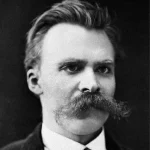“To know yet to think that one does not know is best; Not to know yet to think that one knows will lead to difficulty.”

- 571 BC? – 470 BC?
- Born in China
- Philosopher
- Founder of Taoism, author of the Tao Te Ching and systematized Taoist thought
table of contents
Quote
“To know yet to think that one does not know is best; Not to know yet to think that one knows will lead to difficulty.”
Explanation
This quote from Laozi emphasizes the importance of humility in the pursuit of knowledge. Laozi suggests that acknowledging the limits of one’s knowledge is the wisest approach. When a person understands that there is always more to learn and that their knowledge is imperfect, they maintain a mindset of openness and curiosity. This attitude allows for continuous growth and a deeper understanding of the world. On the other hand, Laozi warns that believing oneself to know everything, especially when one lacks knowledge, can lead to arrogance, poor decisions, and unnecessary difficulties. The quote reflects the value of intellectual humility and the recognition that true wisdom lies not in having all the answers, but in being aware of the vastness of what remains unknown.
In today’s world, this quote serves as a critique of overconfidence in the age of information overload. In many fields—whether in politics, science, or personal relationships—people often claim certainty on complex issues without fully understanding the intricacies involved. Laozi’s message urges individuals to approach the world with a mindset of humility and openness to new perspectives. In doing so, we can avoid the pitfalls of arrogance and learn from the experiences and knowledge of others.
This idea also speaks to the nature of critical thinking. To genuinely understand a subject or issue, one must be willing to accept that they may not have all the answers and be prepared to question their assumptions. By embracing a sense of not-knowing, individuals are better equipped to explore different viewpoints, make more thoughtful decisions, and avoid the difficulties that come from presuming certainty where it does not exist. Laozi’s quote encourages a mindful approach to knowledge, where learning is seen as a lifelong process, and wisdom is found in recognizing the limits of our understanding.
Would you like to share your impressions or related stories about this quote in the comments section?


